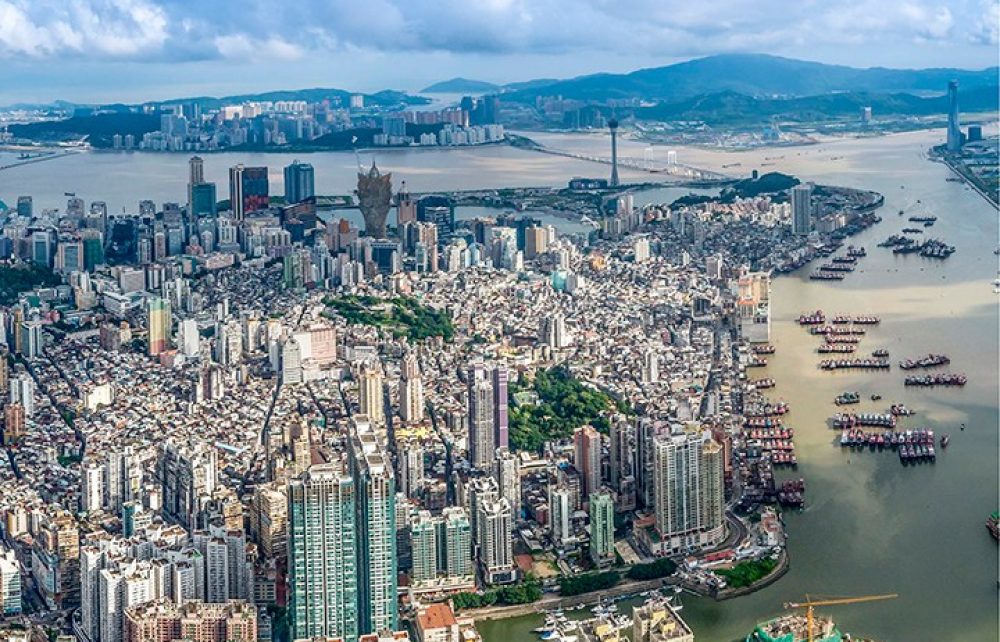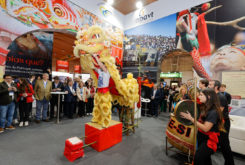In ensuring that it has an attractive alternative to Hong Kong’s role as an international financial hub, China is aiming to build a renminbi-denominated exchange in Macau. According to US-based “think tank” Peterson Institute for International Economics (PIIE), Macau has a long road to travel to reach that destiny, and it will need more financial experts and services that support the nascent industry.
According to PIIE researcher Tianlei Huang, Macau´s financial sector is still small, with only 29 banks, 24 insurance companies, and a nascent bond market. At the end of 2018, the financial asset exchange Chungwa (Macao) Financial Asset Exchange (MOX) was founded by one of China’s central state-owned enterprises, Nam Kwong Group, under the direct jurisdiction of the State-owned Assets Supervision and Administration Commission.
“Since then, at least 17 mainland Chinese entities have issued bonds in Macau, including China’s Ministry of Finance, which issued a renminbi treasury bond offering worth RMB 2 trillion (US$280 billion) in July 2019. In the future, the MOX is expected to host Macau’s first stock exchange denominated in renminbi with mostly high-tech companies from the Greater Bay Area listed on MOX”, Huang writes in an article for PIIE´s website.
The emphasis on using the renminbi in Macau’s nascent capital markets “is problematic”, according to the researcher. “A fully convertible currency is a prerequisite for any international financial hub. But unlike the Hong Kong dollar, the renminbi is not yet fully convertible, and the offshore renminbi liquidity pool in Macau is tiny”. “Perhaps the biggest problem looms over building the trust of the international investor community in Macau’s renminbi-denominated financial asset exchange with mostly mainland Chinese entities seeking finance. That trust will take time and effort to accumulate”.
Compared with Hong Kong, which is home to 72 percent of the world’s offshore renminbi liquidity pool, Macau has a mere 1.25 percent of the liquidity pool as of April 2020. “These factors suggest that Macau’s renminbi-denominated financial asset exchange will be constrained in size and growth”, Huang says.
According to the researcher, “despite its potential advantages, Macau faces many constraints in developing financial services”, namely a “lack of human capital”, with a population less than one tenth of that of Hong Kong and a workforce of less than 400,000, of which more than half is employed in gaming and hospitality sectors, and a mere 3 percent works in financial services.
“To make up for the gap in human capital, Macau has to attract more talented professionals from elsewhere and to invest more in educating and training its own workforce”, adds Huang.
Another issue is a “wide range of professional and business services in legal affairs, accounting, and securities rating”. “None of these exist in Macau and would take years to build up”, the PIIE researcher underlines.
In 2018, gaming alone created more than half of Macau’s GDP, while retail and wholesale, and hotels and restaurants, all closely related to gaming, accounted for another 12 percent of the city’s economy. Financial services constituted less than 7 percent of the city’s GDP in the same year. The Macau government has also been relying on the city’s gambling sector to draw most of its fiscal revenue—84 percent of which came from taxes paid by gaming and surrounding sectors in 2019.
Hong Kong has long been China’s gateway to international capital and doing business with the rest of the world, but with recent political turmoil there “a parallel move has been unfolding in Beijing to build up nearby Macau as a replacement international financial center”, says Huang. “But developing financial services in Macau faces many constraints and cannot be achieved in the short term”, he adds.
“Hong Kong’s future status is clouded with uncertainty, not least because of the COVID-19 pandemic and resulting economic shock. Beijing’s Plan B was prompted by Hong Kong’s protests last year, which have started up again amid Beijing’s latest action to impose national security legislation. Macau, formerly a Portuguese colony, is the only other special administrative region (SAR) besides Hong Kong in China, with its own economic and political systems. Macau already has a national security law comparable to the one planned for Hong Kong”, says Huang.
Among multiple measures implemented by Chinese authorities since last year to ensure that it has an attractive alternative to Hong Kong’s role as an international financial hub, is building a renminbi-denominated exchange in Macau, first to trade bonds issued predominantly by the mainland government and corporate entities, “then to develop a NASDAQ-like equity market to enable more high-tech firms in the Guangdong–Hong Kong–Macau Greater Bay Area to receive financing”, says Huang.
“The idea is to take advantage of Macau’s open capital account and free enterprise—similar to Hong Kong’s but lacking on the mainland—to provide an alternative for mainland entities to access foreign capital while pushing for greater international usage of the renminbi. Given Macau’s unique history, the initiative also aims at turning Macau into China’s gateway to the capital and markets of the Portuguese-speaking world”, adds the researcher.




